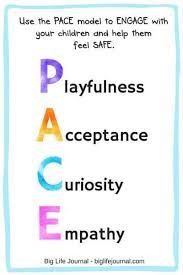Dear Director,
I am done! I don’t care about being a good parent to my 14-year-old adopted daughter anymore. It’s impossible anyway. I’ve lost all hope. I adopted my daughter when she was 5 and she never really let me close to her. Prickly Porcupine is her nickname. In the last couple of years, we end up battling over every single thing. She repeatedly tells me she hates me. I end up feeling like such a bad mom because now I even cringe when she comes into the house. In my adoption support group, they say I am stuck in blocked care. I had never heard of this before. Please help.
Desperate and Hopeless
Dear Desperate and Hopeless,
First off, congratulations for sticking with your porcupine child for nine years (nine years!) and not giving up. Also congratulations on attending a support group, and being open to what the other parents share with us. Now on to the work.
attending a support group, and being open to what the other parents share with us. Now on to the work.
Next, remember that each child, whether by birth or by adoption, comes with their own set of personality traits. Each has a different set of ways to comfort them and support them and help them. Not all children, regardless of how they come to our family, are the loving, hugging, touching type. Could be may reasons, but it is real, and not about you. Your daughter came to you with a distrust of human touch, maybe some sensory issues, and a neurologically planted belief that adults are not to be trusted, and so they should not be let in. You sound like you are doing your best to bring her into feeling good about your family and herself, but she is not there yet. Remember, not your time table, sorry.
Blocked care is when you get exhausted trying to parent and the child does not respond in the way that you expect and the way that would tell you that you are doing a good job as parent. But you are the one who has set those expectations, and if you haven’t yet changed them, then now is the time. In addition, any parent of an adolescent gets teen push back as we try to protect them from the world and their “poor choices” while they decide to go their own way. Like I said before, your daughter came in believing that adults were not to be trusted. She may be doing her best but you are not feeling it, and so you are beating yourself up and tired. You are trying to change her and are worn out from it, and that leads to blocked care.
tell you that you are doing a good job as parent. But you are the one who has set those expectations, and if you haven’t yet changed them, then now is the time. In addition, any parent of an adolescent gets teen push back as we try to protect them from the world and their “poor choices” while they decide to go their own way. Like I said before, your daughter came in believing that adults were not to be trusted. She may be doing her best but you are not feeling it, and so you are beating yourself up and tired. You are trying to change her and are worn out from it, and that leads to blocked care.
So, stop playing the game. Stop trying to get her to do what you want, and be less of a parent for a little while. First off, if you can arrange some respite, that would do you wonders. Now is the time to call all her friends, if she has any, and your family, the ones she likes, and set up overnights and weekends. See if you can access Post Perm respite funding for that and for summer camp, something she would be interested in that would get her out of your hair for a little while.
 Then step back and focus only on the kind of things that you can feel good about, the fun, less authoritarian stuff. Not doing homework? Ask school to step in. Not cleaning her room? Close the door. Refusing to go to therapy? Take a break. I am reminded of Dan Hughes’ “PACE” model of parenting, an approach that focuses on relationship building over that parental thing. PACE stands for playful, acceptance, curiosity, and empathy. Be playful–find the fun stuff to do with your daughter, playing card games or movies or cookies or mani-pedi dates. Not home work. Try to keep your language funny, make jokes when it hurts, be silly. Acceptance-that means you do not have to challenge everything she says, you can accept it for that it is at that moment. You also have to accept who she is and what she brings to your relationship. Curiosity-try to enter her world. “I am curious that you dress so carefully every day for school but your closet is a mess, does that work for you? I am wondering how you chose to try vaping when you told me how much you hated your birth mother’s drug use. Help me understand, how do we match up this junk food binge with getting ready for softball tryouts? That way you are not arguing with her, but asking to enter her thoughts and feelings. And finally, empathy, feeling what the other person feels. This one is particularly hard for people in blocked care. But the truth is, if we want our children to consider our feelings, we have to consider theirs in turn. Be sad that she got kicked out of art class. Be worried that her boyfriend is flirting with another boy. Be scared with her when she comes home late. Feel her feelings with her. It is a joining activity, and it may just be enough to shift your relationship from prickly to mutual caring.
Then step back and focus only on the kind of things that you can feel good about, the fun, less authoritarian stuff. Not doing homework? Ask school to step in. Not cleaning her room? Close the door. Refusing to go to therapy? Take a break. I am reminded of Dan Hughes’ “PACE” model of parenting, an approach that focuses on relationship building over that parental thing. PACE stands for playful, acceptance, curiosity, and empathy. Be playful–find the fun stuff to do with your daughter, playing card games or movies or cookies or mani-pedi dates. Not home work. Try to keep your language funny, make jokes when it hurts, be silly. Acceptance-that means you do not have to challenge everything she says, you can accept it for that it is at that moment. You also have to accept who she is and what she brings to your relationship. Curiosity-try to enter her world. “I am curious that you dress so carefully every day for school but your closet is a mess, does that work for you? I am wondering how you chose to try vaping when you told me how much you hated your birth mother’s drug use. Help me understand, how do we match up this junk food binge with getting ready for softball tryouts? That way you are not arguing with her, but asking to enter her thoughts and feelings. And finally, empathy, feeling what the other person feels. This one is particularly hard for people in blocked care. But the truth is, if we want our children to consider our feelings, we have to consider theirs in turn. Be sad that she got kicked out of art class. Be worried that her boyfriend is flirting with another boy. Be scared with her when she comes home late. Feel her feelings with her. It is a joining activity, and it may just be enough to shift your relationship from prickly to mutual caring.





